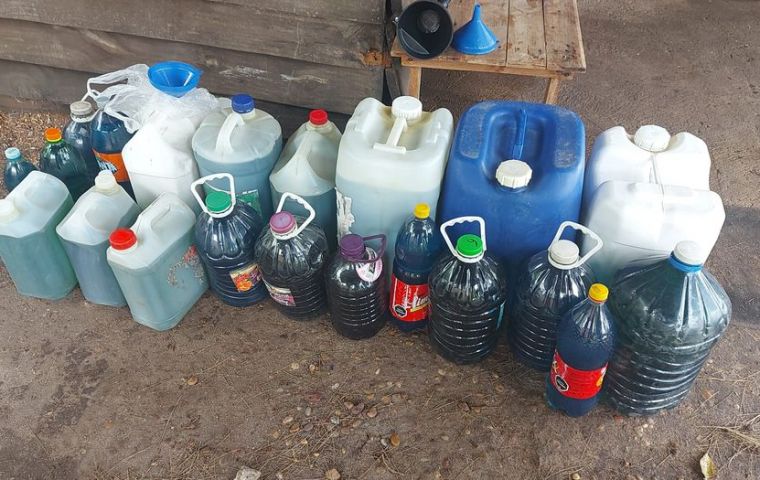MercoPress. South Atlantic News Agency
Uruguayan customs to up smuggling controls
 On Wednesday, Uruguayan Customs dismantled an organization smuggling fuel from Argentina and seized 950 liters of fuel.
On Wednesday, Uruguayan Customs dismantled an organization smuggling fuel from Argentina and seized 950 liters of fuel. Uruguayan Customs is to seize any package over 5 kilos to protect traders in border towns, who suffer the consequences of the depreciation of the Argentine peso which makes shopping across the border more convenient, it was announced.
According to Montevideo's El Observador, Uruguayan Customs will up anti-smuggling border controls as per General Customs Directorate General Resolution 47/2021, applicable to any person of legal age once every 15 days.
“The population is requested to take the necessary precautions, since non-compliance with these regimes determines the seizure of merchandise and delays at border crossings where customs controls are carried out,” Customs authorities said in a statement.
Goods will not be seized when they do not exceed five kilos per person or when “it is a varied assortment, intended for the subsistence of the family unit,” the authorities explained. People residing in the border zone will also be exempted from confiscations.
Uruguayan authorities announced they will be particularly strict near Salto, a town where local businesses have been severely affected by the currency disparity. Uruguayan customs announced the hiring of some 60 new officials for this task while the Executive Branch has authorized 70 additional workers.
According to the Catholic University of Uruguay (UCU), buying the same basket of products in the city of Concordia (Argentina) is 63.5% less expensive than in the neighboring Uruguayan town of Salto, which explains shopping trips across the border.
“Food and non-alcoholic beverages” in Salto are 201% more expensive than in Concordia; “alcoholic beverages and cigarettes” 234% more expensive; “clothing and footwear” 76.7% more expensive; and household products 131% more expensive, it was reported. Comparisons are based on the so-called “blue dollar” exchange rate.
According to Uruguay's National Directorate of Migration, 168,000 people crossed into Concordia in September, almost twice as many as in the previous month. Migrations Director Eduardo Mata explained that officers in his department are equipped with 2003 technology, which means that to detect “if the entry and exit is repeated, we would have to do an individual search on each person, to see how many times he/she entered and left.”




Top Comments
Disclaimer & comment rulesCommenting for this story is now closed.
If you have a Facebook account, become a fan and comment on our Facebook Page!